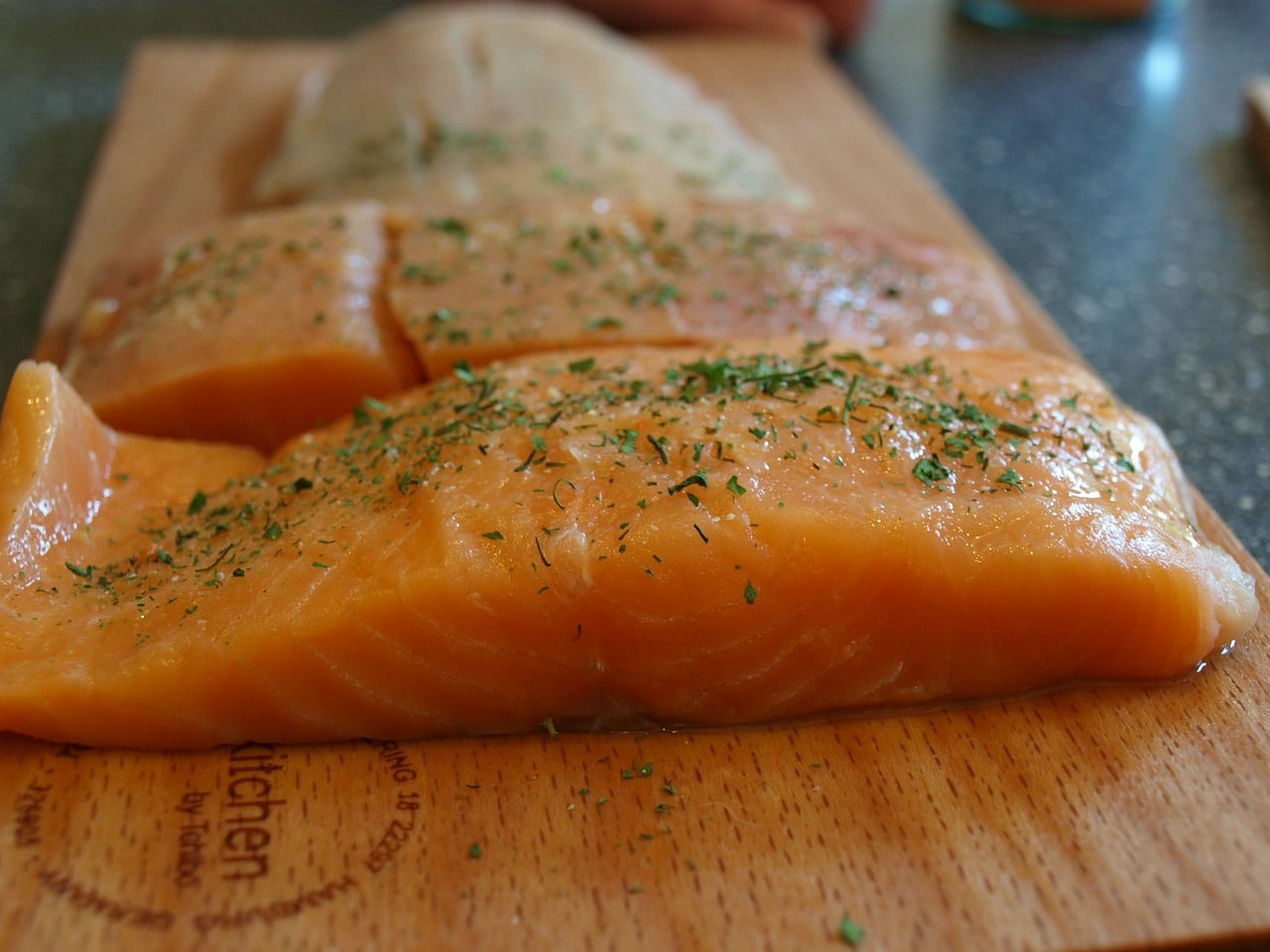Gout is very painful, so it’s natural for people to wonder if they can still eat certain seafood after being diagnosed with gout. We certainly recommend speaking to your physician about your diet if you have arthritis or gout, as diet can cause issues with your joints.
As a person ages, flare-ups of gout can become more severe, leading to much worse instances. If you are tired of downing painkillers and would like a more natural approach to moderating flare-ups of your gout, read today’s robust discussion on purines, gout, and seafood.
Is Salmon High in Purines?
Salmon is not as high in purines compared to other types of fish. On average, salmon provides 170 mg of purines for every 100 grams. Other fish that are OK to consume in controlled amounts because of their moderate purine content are haddock, halibut, herring roe, Atlantic herring, Matje cured herring, pike-perch, and mackerel. However, keep in mind that their physicians will likely dissuade those with severe gout from eating even these fish.
There might be some debates about whether you should be consuming seafood at all when you have gout, but we have to take into account the gentle balancing act that occurs when we choose to eat food.
All food items can potentially increase compounds that may cause inflammation in the body. The key here is to find food that will provide benefits on top of the small risk that something may happen afterward due to having a chronic condition like gout. Salmon is one of these foods that you can ‘risk’ a little because it provides so much to the body in return.
Purines occur naturally in the food that we eat. These are compounds that are eventually metabolized and transformed into uric acid. Purines are constituted by oxygen and nitrogen.
The uric acid is then filtered and removed by the body through the action of the kidneys. When the body loses its capacity to filter out uric acid and purines, this is the time that the nitrogenous waste begins to gather in the joints, causing extremely painful inflammation. Gout can become so severe that some gout patients require surgery, so you must know how to manage your gout for better general health.
Is It OK to Eat Salmon If You Have Gout?
On the whole, salmon is an exception to the seafood list that should be excluded from a rheumatic or gout-friendly diet. It all boils down to how much purines are found in the food you are consuming in the first place.
The amount of purines in every salmon serving does not compare to the purine content of roe, sardines, scallops, trout, and anchovies. Brined and oiled fish are often high in purines, too. Some people can tolerate these food items because they medicate.
However, there are instances when even the medication doesn’t do much with the flare-ups, and that’s when doctors normally recommend more restrictive measures for a person’s diet. While the complete avoidance of purines is not possible if a person is still eating whole foods, it can be minimized to the bare minimum to reduce flare-ups to the same level.
What about seafood like crabs, shrimps, oysters, and lobsters? These should be avoided completely or eaten only very sparingly as they are hard on a body with arthritis.
These items pack the highest amounts of purines in the list of common food items consumed by people. While some people will find it unfortunate that they can no longer eat what they used to eat when they were younger, you will find that reducing the purine intake, on the whole, will improve the condition of a person with gouty arthritis.
What Causes Gout?
Gout or gouty arthritis is a condition caused by the accumulation or build-up of uric acid in the body. The symptoms of gout often occur in the feet, especially around the joints. A gouty arthritis person will experience inflammation, swelling, and sharp pains in the various foot joints. The big toe is most affected by this condition. Whenever gout occurs, the inflammation and pain may occur for as long as ten days. If you’re lucky, most of the warmth and redness will go away after three days. It all depends on your body’s state, the severity of the condition, or if you are taking any medication for it.
Doctors call the bouts “attacks” as in “gout attacks” because in between the said bouts of gout, you won’t have any issues with it. There won’t be any pain or other severe symptoms at all. The treatment of gout is necessary if you don’t want it to get worse over time. The uric acid depositions around the joints won’t just go away by ignoring them. They can cause permanent damage if the uric acid is not controlled properly with diet, exercise, and medication.
Tophi refers to the lumps that develop on top of affected joints in the foot. The more you get gout attacks, the more tophi your body develops as a reaction to the gout attacks. What’s unfortunate here is that tophi can also easily affect the affected joints’ soft tissues – including the skin. That’s what you have to think about if you think that you can ignore your gout. We recommend having yourself checked out ASAP if you think you have gout.
Which Fish Is Bad for Gout? List Of Foods To Avoid With Gout
Certainly, some foods cause gout, and no one wants to consume these if they want to have a pain-free year. If you want to regulate your purine intake, we recommend avoiding anchovies, carps, halibut, ocean perch, coalfish, pilchard sardines, trout, tuna, etc. These fish have the highest purine content around, and eating a lot of these fish will send your uric acid levels surging.

